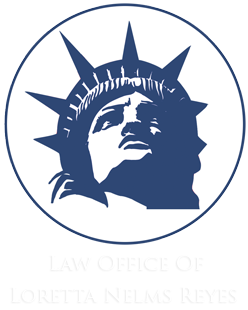Employment-Based Green Cards
Employment-Based Green Cards
Employment based immigration is a complex process that may involve a number of government agencies within the Federal Department of Labor, the State Department of Labor, the United States Citizenship and Immigrant Services (USCIS) and the Department of State (DOS).
It allows United States employers to sponsor, for lawful permanent residence in the United States, foreign nationals who have the skills, ideas, knowledge and talents needed in the United States.
Labor Certification/PERM
Foreign labor certification programs permit U.S. employers to hire foreign workers on a temporary or permanent basis to fill jobs essential to the U.S. economy. Certification may be obtained in cases where it can be demonstrated that there are insufficient qualified U.S. workers available and willing to perform the work at wages that meet or exceed the prevailing wage paid for that occupation in the area of intended employment.
Foreign labor certification programs are designed to assure that the admission of foreign workers into the United States on a permanent or temporary basis will not adversely affect the job opportunities, wages, and working conditions of U.S. workers.
Priority Workers
This preference category includes individuals of “sustained national or international acclaim” with “extraordinary ability” in the sciences, arts, education, business or athletics; “outstanding professors and researchers” recognized internationally in a specific academic area; and “certain multinational executives and managers.” Foreign nationals eligible for O-1 or L-1 non-immigrant visa status often qualify for immigrant status under this category.
This category requires no labor certification as a condition of visa issuance.
Professionals with Advanced Degree or Exceptional Ability
This category includes members of the professions holding advanced degrees and aliens who, because of their exceptional ability in the sciences, arts or business, will substantially benefit the national economy, cultural, or educational interests or welfare of the United States.
To qualify as a member of the professions the applicant must have an advanced degree, which the USCIS takes to mean “any United States academic or professional degree or a foreign equivalent degree above that of baccalaureate.” This essentially means a United States masters degree or above. The INS has indicated that a U.S. or equivalent foreign baccalaureate followed by at least five years of progressive experience in the specialty will be the equivalent to a masters degree. If the profession requires a degree higher than a masters, the alien must have that degree.
Professionals, Skilled Workers
This category consists of skilled workers, professionals and “other workers”. Skilled workers are those whose positions require a minimum of two years of training or experience. Professionals must possess a bachelor degree in the field and must establish that a bachelor degree is the normal requirement for entry into the profession.
However, due to the shortage of registered nurses and physical therapists in the United States, the law currently provides for their automatic labor certification under Schedule A. Schedule A is a list of pre-certified occupations for which the Secretary of the Department of Labor previously has determined that there are not sufficient U.S. workers who are able, willing, qualified and available and that the wages and working conditions of U.S. workers similarly employed will not be adversely affected by the employment of aliens in such occupations. As a result, foreign Nurses and physical therapists that have passed the CGFNS exam or are certified as an NCLEX-RN or by FCCPT can obtain permanent residence without their petitioning employer needing to test the labor market prior to filing a visa petition on their behalf.
The final category of “other workers” means essentially unskilled workers.
Professionals and skilled workers are placed on the same waiting list for available visas. However, other workers are placed on a separate waiting list. Given the fact that backlog for “other workers” is effectively twenty years, the filing of such a petition for an unskilled worker is not recommended.
Dependents of Employment Based Beneficiaries
The dependent spouse and child of an employment-based beneficiary are considered derivative beneficiaries. They are therefore eligible for lawful permanent residence under the same employment-based preference category as the principal beneficiary.
EB-5 Visa for Immigrant Investors
The EB-5 Visa for Immigrant Investors is a United States visa created by the Immigration Act of 1990. This visa provides a method of obtaining a green card for foreign nationals who invest money in the United States. To obtain the visa, individuals must invest at least $1,000,000 USD, creating at least 10 jobs. By investing in certain regional centers with high unemployment rates, the required investment amount is only $500,000.
To qualify the foreign entrepreneur must invest in a “new commercial enterprise” which can be a startup business; a business that is purchased and restructured; or a troubled business in which the entrepreneur substantially changes/expands the net worth or number of employees of the business. Commercial enterprise means any for-profit activity formed for the ongoing conduct of lawful business including, but not limited to, a sole proprietorship, partnership, holding company, joint venture, corporation, business trust, or other entity that may be publicly or privately owned.
The investor must be actively involved in the management of the business. After two years, the investor must demonstrate that he/she has satisfied the aforementioned conditions in order to maintain lawful permanent residence in the United States.
